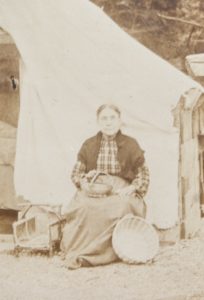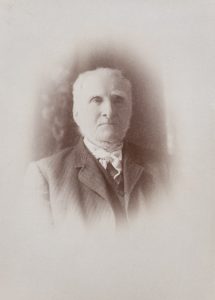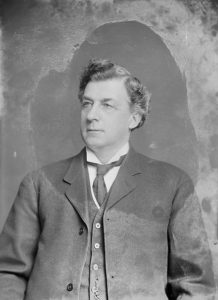The Peoples of Metis
Peopling Metis began in earnest in 1818 with the settlers that arrived in the Rebecca, the Quebec City built ship that John Macnider chartered to bring settlers from Scotland to his seigniory.
Who had settled in Metis prior to 1818? Census data in Quebec begins only in 1825 when the government of Lower Canada began to collect information on inhabitants to determine the number of seats for parliamentary representation. Metis then had just 87 residents. Only the male heads of households were identified, their wives and children enumerated but their names not listed. All of the names are Scottish except that of Charles Brand, a veteran of the War of 1812, who was born in England.

A single photograph from the 1890s identifies an Indigenous woman ,“Annie St-Denis”, one of the Mi’kmaq people who settled in Metis during the summer to sell baskets to visitors.
No Indigenous names made the list. Indigenous peoples who lived in the region were mostly nomadic. They traversed the territory on a regular basis, their age-old tradition taking them up and down the region’s water courses. The mouth of the Metis River was a popular venue for summer camps, as evidenced by mussels and clams found in fire pits there by archeologists that are thousands of years old. A handful of Malécites appear to have taken up residence near the Anse-des-Morts at Leggatt’s Point in the 1870s after they were expelled from their lands at Cacouna.
Although Métisser is a verb used in French to describe the mixing of two peoples, there is no evidence that Indigenous peoples mixed much with the settlers of Metis. They shared a common landscape but otherwise lived almost entirely separately.



